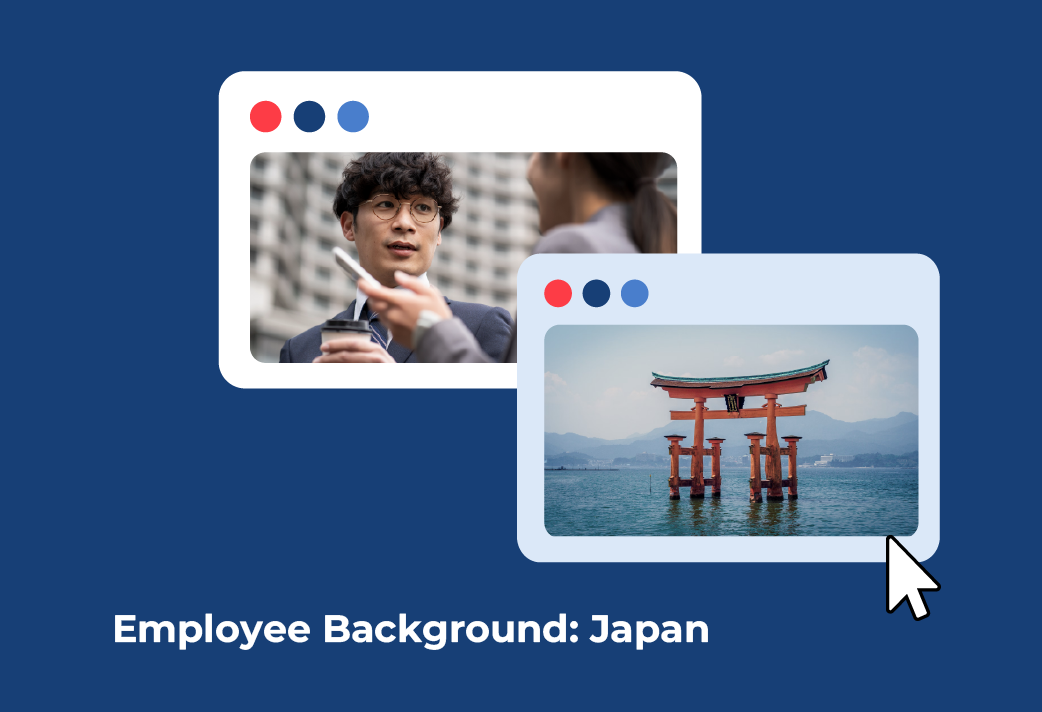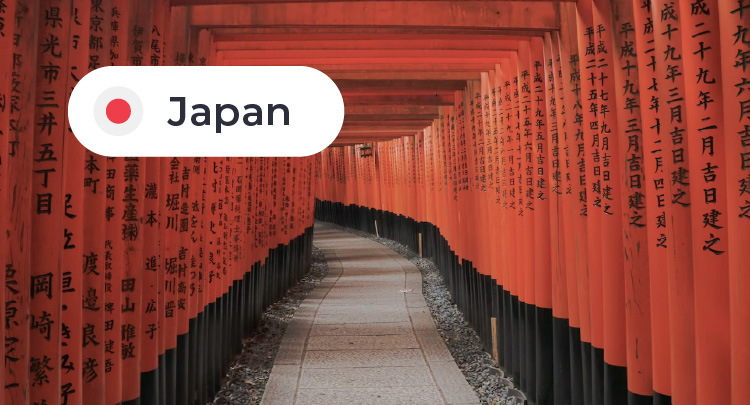Background checks are a crucial aspect of the hiring process in Japan, offering employers valuable insight into a potential choice’s suitability for a position. However, like in many countries around the world navigating the intricacies of employee background checks in Japan requires a comprehensive understanding of the legal framework and cultural norms.
To help avoid potentially costly mistakes or faux pas, we’ll delve into the nuances of conducting background checks in Japan and how INS Global can assist businesses in this endeavor.
What are Background Checks?
In Japan, the working culture makes terminating an employee very difficult, meaning hiring managers must be sure about their choice before giving a job to a candidate, regardless of how strong they may appear in an interview. To help build confidence about hiring choices, they may take the time to run a background check and investigate an individual’s financial, educational, or work experience. This can help to verify their credentials and assess their suitability for a job.
An employee background check in Japan may include a number of steps tailored to the needs of the company or role, such as reviewing criminal records, employment history, educational qualifications, and other relevant information. However, as labor laws differ around the world, how deep a company can go into someone’s history during a background check may depend on where it’s being performed.
4 Common Types of Employee Background Checks
Various types of background checks are commonly conducted by employers, with the following being the most typical:
- Criminal Record Checks – These verify whether the candidate has a criminal record and are often done when ensuring workplace safety and the security of clients or other employees.
- Education Verification – Often done when hiring for jobs with high technical or skill-based requirements, confirming the candidate’s educational qualifications helps employers assess someone’s ability to fulfill a role.
- Employment History Checks – Reviewing the candidate’s past employment can provide insights into their work ethic, experience, and reliability. While questions about past jobs often feature in an interview, contacting past employers or teammates can be the perfect way to know if someone will fit in with a team or company.
- Credit History Checks – While less common in many countries, some employers may opt to check a candidate’s credit history to assess their financial responsibility. This is most often done in jobs where the prospect would be in charge of money, but it may also be done for other reasons.
What Employers Should Know Before Running Employee Background Checks in Japan
Before conducting background checks in Japan, employers must be aware of the legal and cultural considerations surrounding this process.
Are Employee Background Checks Legal in Japan?
Yes, employee background checks in Japan are legal but subject to strict regulations to protect individuals’ privacy rights.
The primary legislation governing employee background checks in Japan is the Act on the Protection of Personal Information or APPI. This regulates the handling of personal data by businesses and organizations. Under the APPI, employers must obtain consent from individuals before collecting, using, or disclosing their personal information.
The APPI also requires that employers inform prospects about the purpose of the background check, the types of information collected, and how it will be used. Any personal information obtained through background checks then needs to be handled securely and protected from unauthorized access or disclosure.
What Types of Employee Background Checks Are Illegal in Japan?
While employee background checks in Japan are generally permissible, some checks are illegal or restricted where they would infringe on laws against workplace or personal discrimination.
For example, conducting checks on an individual’s medical history or performing checks that would affect their chances of getting the job despite the check not being necessary for that role would be considered discrimination and, therefore, could be argued as illegal.
Similar to medical history checks, employers in Japan are prohibited from requesting or using genetic information for background checks. This includes information obtained through genetic testing or analysis, such as DNA tests.
The 3 Most Common Employee Background Check Industries in Japan
In Japan, certain sectors are more likely to conduct specific types of background checks based on the nature or requirements of the jobs being hired for. This includes:
- Finance – Financial institutions might often conduct thorough background checks to ensure that employees handling sensitive financial transactions do not have conflicts of interest or prior financial problems that could lead to issues of trust.
- Healthcare – In the healthcare sector, background checks are essential for verifying not only the qualifications and credentials of medical professionals but may also be necessary when working with at-risk patients.
- Education – Schools and educational institutions in Japan are typically required to conduct employee background checks to ensure students’ safety and teaching quality.
The 3 Biggest Background Check Mistakes to Avoid in Japan: Navigating Compliance and Cultural Sensitivities
Conducting background checks in Japan can be complex because they require balancing legal compliance with cultural sensitivities. Here are the 3 most critical mistakes employers must avoid when doing these checks:
1. Failure to Obtain Consent
Obtaining explicit consent from candidates is not just a courtesy but a legal need when conducting employee background checks in Japan. Failure to secure consent can lead to serious legal problems for a company.
Employers in Japan are expected to put worker safety at the top of their list of priorities in these cases, with a study conducted by the Japan Institute for Labour Policy and Training finding that 87% of Japanese employees prioritize privacy protection in the workplace.
To ensure compliance, employers must make the purpose and scope of the background check clear to candidates and obtain written consent before starting.
Moreover, employers should allow candidates enough time to review and dispute any mistakes in the background check report.
2. Reliance on Unqualified Third-Parties
While third-party providers can streamline the background check process, employers must exercise caution to avoid falling afoul of Japanese regulations and compromising data privacy standards by working with the wrong partners.
Some checks may be more efficient or effective when done through a background check service, and others may even require the tools or time that aren’t available in-house. However, employers need to thoroughly vet third-party providers rigorously and ensure they adhere to stringent data protection regulations.
Before engaging a third-party provider, employers should verify their reputation, credentials, and compliance with Japanese privacy laws. This includes taking the time to learn about the provider’s data handling practices and security measures.
3. Ignoring Cultural Sensitivities
Cultural norms surrounding privacy and personal information can differ greatly in Japan compared to Western countries. Ignoring cultural sensitivities is never a good idea, but in this case, it can also lead to bad starts with candidates and damage an employer’s reputation.
Studies such as those published in the Journal of Cross-Cultural Psychology found that Japanese individuals prioritize group harmony and collective interests over individual autonomy. This may mean that employers in Japan will perform background checks that aim to secure a company’s working harmony, even at the risk of disrupting personal legal rights.
International employers should adopt a transparent and consultative approach to background checks in order to avoid compliance risks. Employers can also consider offering candidates the opportunity to provide additional context or explanations on their own first. This demonstrates respect for a collaborative, trust-based relationship.
Run Employee Background Checks In Japan Confidently with INS Global
By understanding best practices around background checks, Japan-based employers can effectively build a trustworthy and capable team. With the support of INS Global and our team of expert recruitment professionals, businesses can get through this process with confidence and efficiency.
INS Global offers tailored solutions to assist businesses throughout the hiring process from start to end, from localized searches to conducting background checks in Japan which ensure legal compliance and maintain candidate trust. By partnering with INS Global, employers can confidently make informed hiring decisions and build a talented workforce in Japan.
Contact our team of expert global expansion advisors today to learn more.



SHARE